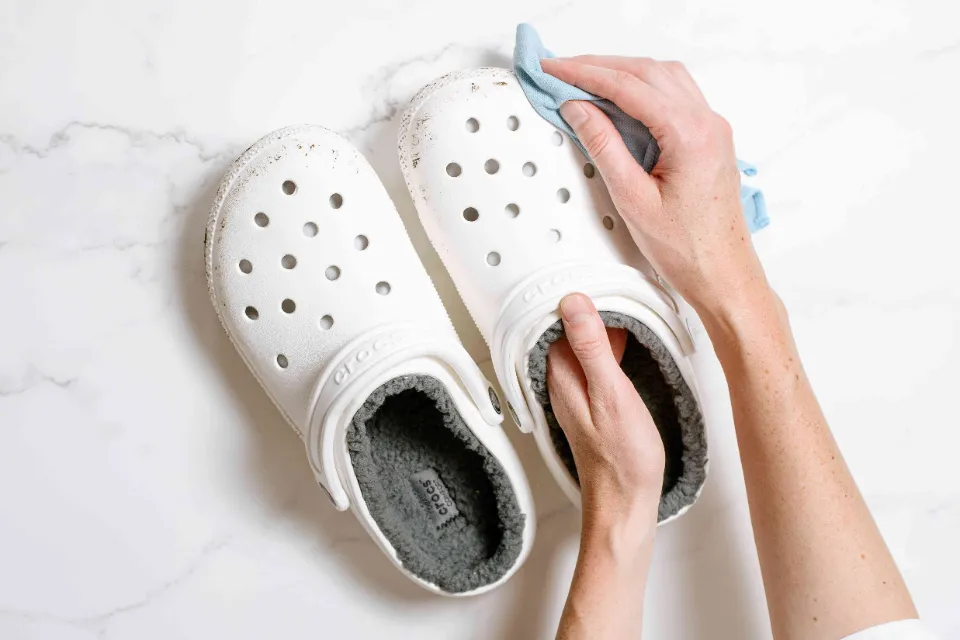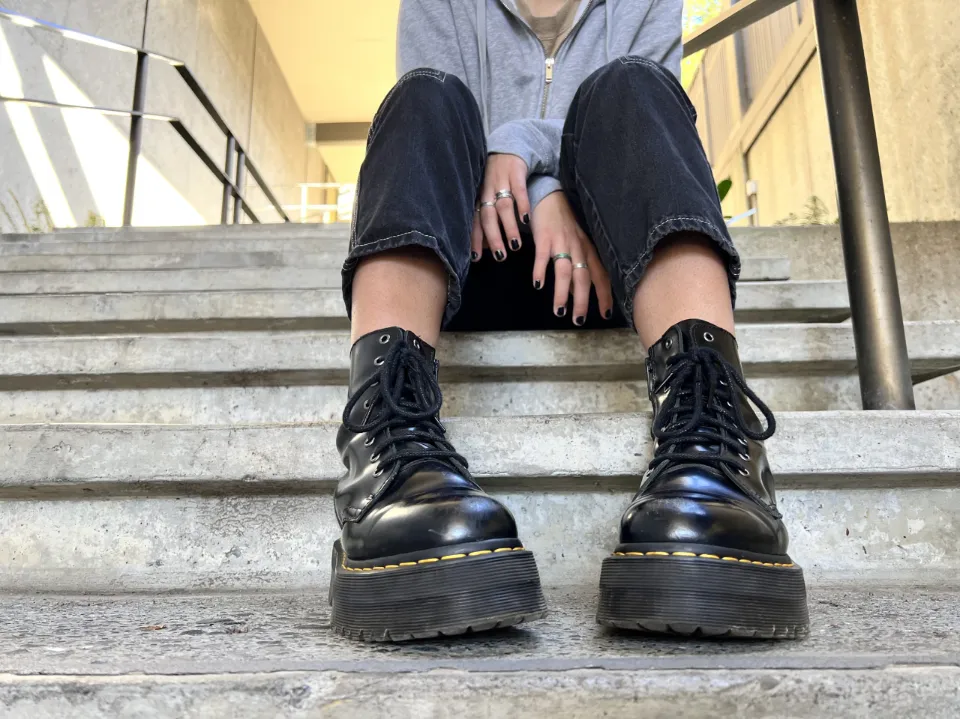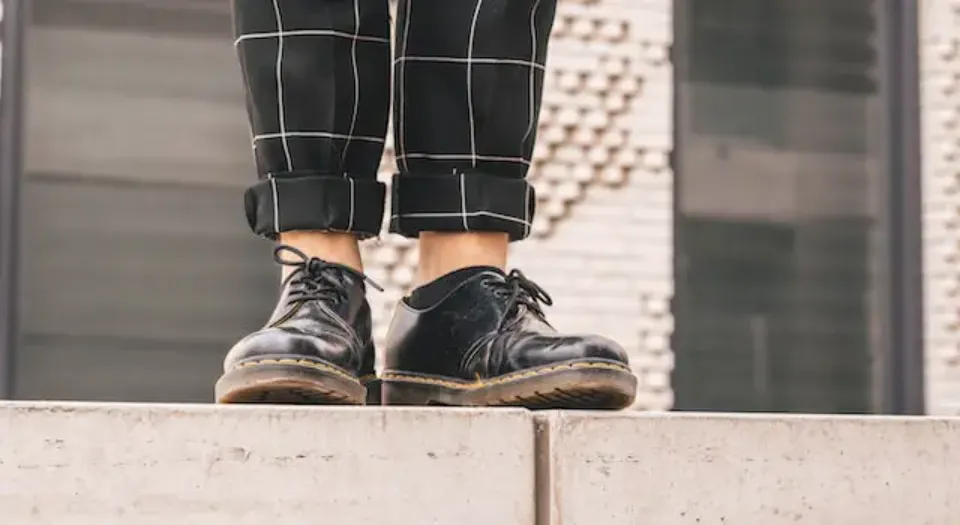Because of the soft, sturdy, and comfortable materials used to make Crocs, buying and wearing a pair is a wise choice. Many of us own Crocs but do you know how to clean Crocs properly?
It is important that you learn how to clean Crocs without damaging them so that you can enjoy your comfy shoes for many years to come.
Fortunately, cleaning Crocs is not too difficult. The go-to manual for restoring your Crocs with little hassle and some tender loving care is provided here.
How to Handwash Dirty Crocs?
According to Crocs.com, the recommended mode of cleaning standard Crocs made of Croslite material can be cleaned by hand.
- Thoroughly wet down the Crocs. The idea of putting cold water in a sink works well.
- Add a few drops of dish soap to a damp cloth.
- Incorporate the dish soap into the cloth.
- Rotate your hands around the Crocs.
- Use the scrub brush to remove stubborn stains.
- Rinse in cold water.
- Allow to air dry.
How to Clean White Crocs?
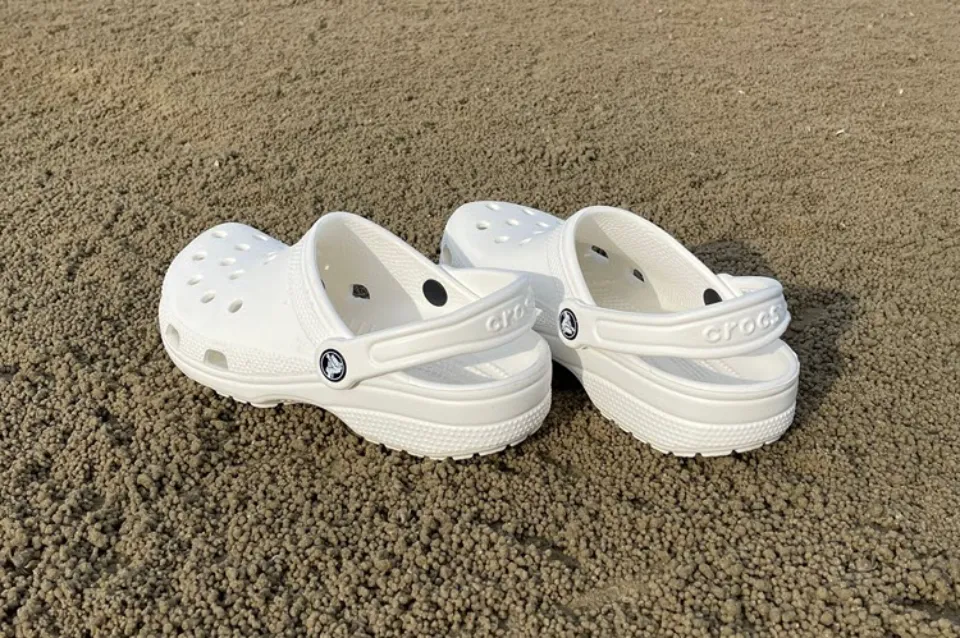
You shouldn’t clean white Crocs with bleach. Your Crocs may find this chemical to be too harsh. On the other hand, you can use baking soda to clean white Crocs.
- Wet down your Crocs.
- Use dish soap and a soft brush to scrub them.
- Wet a cloth and dunk it in some baking soda if there are still stains.
- Utilizing circular motions, scrub the stains with the baking soda.
- Rinse and dry.
ou Might Also Like:
- How to Clean Sandals?
- How to Clean Sperrys?
- How to Clean Riding Boots?
- How to Clean Nike Blazers?
- How to Clean White Sneakers?
How to Clean Fuzzy Crocs?
You might be wondering how to clean those fur-lined Crocs. The process is pretty similar to how you clean standard Crocs. Simply make sure to clean out that lining as well.
- Use cold water to thoroughly wet down your Crocs inside and out.
- Several tablespoons of laundry detergent should be combined with 2 cups of cold water.
- In a sink or bathtub, pour it over the Crocs.
- Clean the Crocs’ interior and exterior using the scrub brush. The lining deserves special attention.
- Thoroughly rinse, then let air dry in a shaded area.
How to Remove Smells from Crocs?
Are you still dealing with odors after cleaning your Crocs? After that, it’s time to get the baking soda out.
- Fill a plastic bag with a liberal amount of baking soda.
- Add your Crocs.
- In the freezer for the night with the plastic bag.
- Shake off any baking soda before removing them.
Can Crocs Be Cleaned in a Regular Washing Machine?
Yes, you can put your dirty Crocs in the washing machine.
A pair of Crocs washed in the washing machine may eventually become damaged from constant bending and straining, though. Even worse, excessive heat exposure might cause your Crocs to contract.
Can You Put Crocs in the Washer?
While Crocs recommends handwashing your Crocs, you can put the styles made of canvas and croslite in the washing machine.
Use your washer’s delicate cycle and cold water to wash the items. Use only laundry detergent; do not use bleach or other caustic substances.
How Often to Clean Crocs?
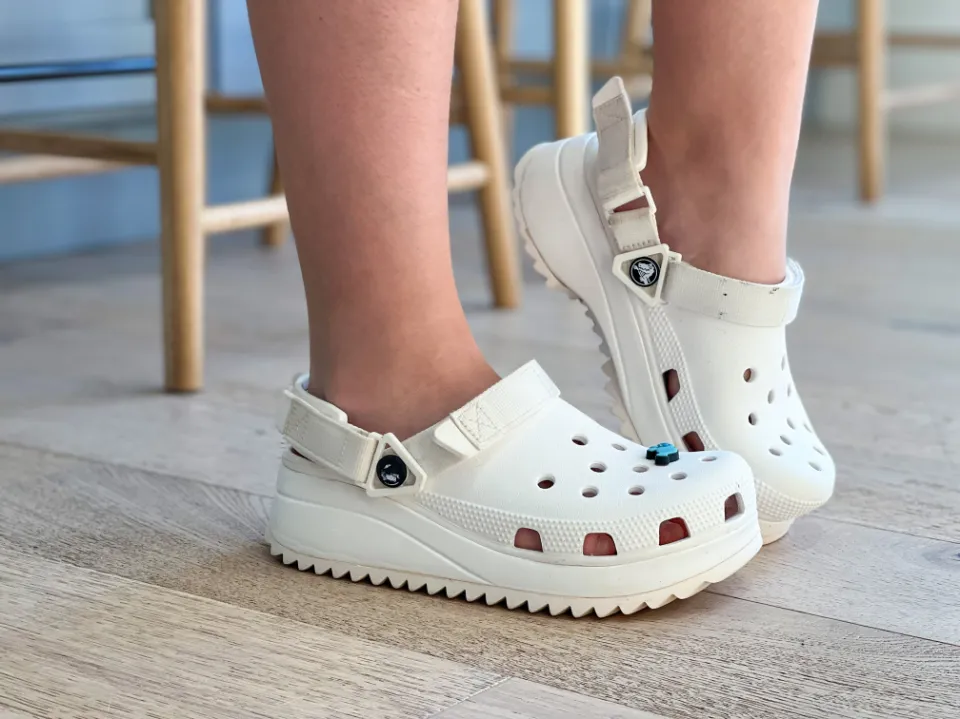
How frequently Crocs need to be cleaned depends on how often they are worn and where they are worn. Only spot-clean any specific stains on shoes that are worn infrequently and give them a thorough cleaning at least once per season.
Regular cleaning will keep Crocs smelling good and looking their best if they are worn on a daily basis.
To avoid odors from growing, they should be cleaned once a week or whenever there is obvious dirt on the shoes.
The Bottom Line: How to Clean Crocs
Because Crocs are made of synthetic material, using a magic eraser or painting them can change their feel and appearance.
In order to avoid covering your entire pair of shoes, you should first try it on a hidden surface.
Read More:
FAQs
Can Crocs Be Washed?
Cleaning your Crocs is very similar to cleaning any other pair of shoes you own. Always clean them in a gentle, cold-water cycle without spinning after you remove any obvious external dirt or mud.
Can I Clean Crocs With Wet Wipes?
Although wipes might not disinfect well, they do prevent mold from growing inside or on their surface, so they shouldn’t be used for routine cleaning.

